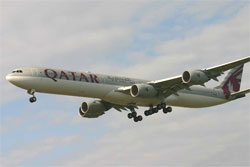Sustainable Tourism…A Reflection On The Events Of 2009
Although the environment was overshadowed somewhat by the recession last year, the travel industry nevertheless made a significant step forward to a sustainable future.
Leading travel companies pledged to protect the environment amongst a number of other sustainability commitments at the Travel Convention last October.
Founding partners Abta, British Airways, Carnival UK, The Co-operative Travel, The Travel Foundation, Thomas Cook and TUI Travel have, with Advantage Travel Centres and Sunvil Holidays, have committed themselves to creating an industry which benefits people and the environment by 2023.
The initiative, known as Tourism 2023, has six principles: protecting the environment; developing employees; providing customers with mainstream sustainable products; ensuring destinations benefit from tourism; innovating to create sustainable transport and resorts; and developing a business which is environmentally, socially and financially sustainable.
For example, in the Gambia and Tobago, the Travel Foundation has helped local farmers to gain vital income from the sale of produce to hotels. The initiative now supplies many of the hotels in the main resorts, and is reviving farming skills, reducing the need for imports and helping the environment as a result.
ADVERTISEMENT
The Tourism 2023 initiative is being co-ordinated by Forum for the Future and Defra. The partners hope that the project will also lead to action within the wider UK outbound industry to tackle the challenges it faces.
BA was also the driving force in a surprising move by the airline industry last year, which pledged to cut their CO2 emissions in half by 2050.
The move was seen as a pre-emptive strike against the green lobby which has been clamouring for airlines to slash their emissions despite the sector contributing to just 1.6% of global CO2 emissions annually.
However, the knock-on effect will mean higher fares, which are predicted could rise by as much as E40 on a long-haul return flight and E9 on short haul flights.

The 50% reduction on 2005 emission levels goes far beyond the UK government’s target of keeping emissions at 2005 levels.
The proposals, which were agreed between airlines, airports and aircraft manufacturers and agreed by industry body IATA, also include: a pledge to make all industry growth carbon neutral by 2020; to cut CO2 emissions by 1.5% per year over the next 10 years; and submit plans for joining a global carbon trading scheme to the UN by November next year.
Meanwhile, Qatar Airways made the first move in this direction by completing the world’s first commercial passenger flight powered by a fuel made from natural gas.
The flight from Gatwick to Doha on an Airbus A340-600 used a 50-50 blend of synthetic Gas to Liquids (GTL) kerosene and conventional oil-based kerosene fuel.
The fuel, used as an alternative to conventional oil-based kerosene, burns with lower sulphur dioxide and particulate emissions than pure conventional oil-based kerosene, thus improving local air quality at busy airports.

Meanwhile, environmental tour operator responsibletravel.com removed its carbon offset calculator from its website and replaced it with a new advice page, more than 200 UK holidays, a train booking function and a list of operators who have gone out of their way to reduce their carbon footprint.
Managing director Justin Francis said: “We believe the travel industry’s priority must be to reduce carbon emissions, rather than to offset.”
Responsibletravel.com was one of the first travel organisations to feature a carbon calculator.

